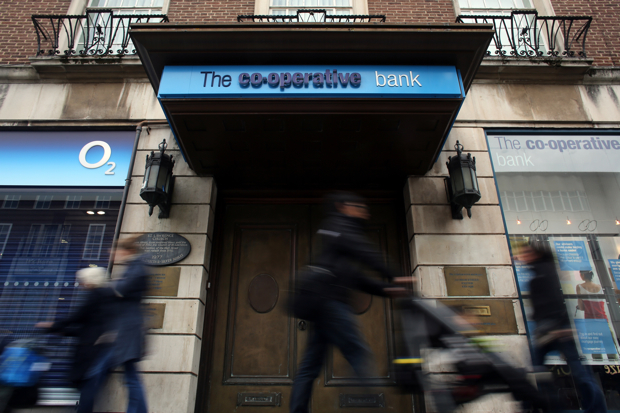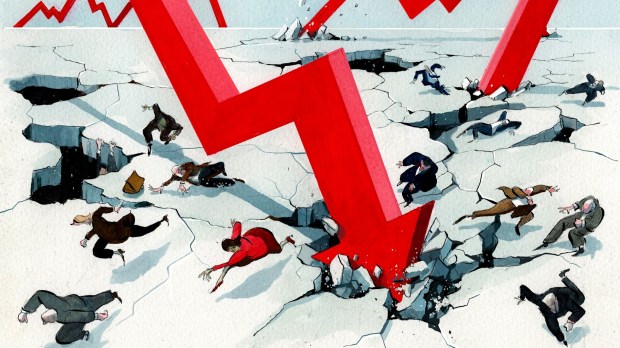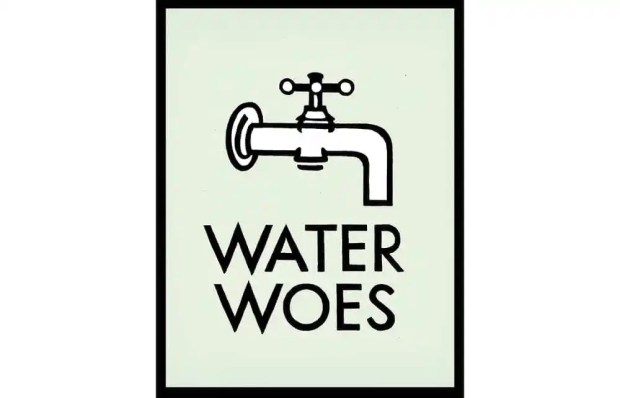‘Satan seizes control of saintly bank’ would be a fair summary of much of the coverage of the deal that has rescued the crippled Co-operative Bank from oblivion, or ‘resolution’ as it is technically called. In order to avoid that fate, the parent Co-op Group has had to inject £462 million into the bank while accepting a reduction in its own equity stake to 30 per cent. Dominant among the holders of the other 70 per cent will be a group of hedge funds from New York and Los Angeles who may or may not represent the prince of darkness but are certainly looking for what Co-op Group chief Euan Sutherland calls ‘recovery value’. That means their aim is to get out at a handsome profit as soon as they can, and not to become long-term investors in the Co-op model of banking biodiversity for which many of us once had high hopes.
Fifty of Co-op’s 324 branches have already been targeted for closure, with the loss of 1,000 jobs. The challenge now is to persuade its 4.7 million account-holders not to depart — and much has been made of the preservation of the ‘ethical’ policies that, along with the mutual ownership of the parent group, attracted many of those customers to join in the first place.
Mutuality will henceforth be a rather small rock at the bottom of the tank full of sharks this story has become. But Sutherland says he can keep a lock on the bank’s ethics because they are enshrined in its memorandum and articles (which can’t be changed without the Co-op shareholders’ agreement) and will be overseen by independent directors — so it’s worth asking what those ethics are, and how much good they have done.
‘Our commitment to fighting climate change’ has stopped the bank investing in companies whose core activity is the production of fossil fuels. ‘Fairtrade’ customers are welcome, but the bank withholds finance from businesses that irresponsibly sell cigarettes, drugs and weaponry in developing countries. It also shuns the fur trade, intensive farming, cosmetics testing on animals, and blood sports.
You probably think I’m about to be cynical about all that, but I’m not — well, not entirely. The climate change stance is open to challenge these days, and I’m reminded of a Spectator headline I once wrote that said ‘Free trade is fairer than Fairtrade’. But if customers voted for these constraints on their bank’s lending targets, so be it. The sad thing is that the sinners found all the finance they needed elsewhere, while the bank righteously ruined itself.
Since the launch of its ethical policy in 1992, the Co-op has ‘withheld over £1.2 billion of funding from business activities that its customers have said are unethical, whilst at the same time increasing commercial lending sixteenfold to almost £9 billion’. That commercial lending explosion was of course concentrated in ethically neutral but ultimately toxic real estate, including loans inherited with the takeover of the Britannia Building Society in 2009. The portfolio might have been a lot safer if it had embraced some oil, tobacco and pharmaceutical companies. Perish the thought, but bearing in mind Melissa Kite’s article last week about rising support for her favourite pastime, the Co-op might even have done better by lending to the high-growth fox-hunting sector.
Everything for £1
The stock market is hot for new issues after the soaraway Royal Mail flotation — and pushing to the front of the checkout queue comes Poundland, the discount retailer which has kept its promise of pricing everything at £1 since it opened in Burton-on-Trent in 1990. With sales last year of £880 million through almost 500 outlets, and plans to double that number, Poundland has become an iconic brand of the extended downturn and accompanying squeeze on household spending. It has also contributed to Britain’s surprisingly healthy private-sector employment figures, by creating 1,700 new jobs last year — though one graduate sent to Poundland on unpaid work experience under the coalition’s flagship ‘back to work’ scheme claimed her human rights had been breached and took her case all the way to the Supreme Court, which ruled the scheme out of order.
‘Price-point’ retailing traces its history to F.W. Woolworth’s first five-cent store in Pennsylvania in 1879 — and it’s no surprise that Poundland has taken over 85 Woolworths sites since the older icon of cheap shopping went bust in 2009. Now the big pound sign is a fixture among the payday lenders, bookies, cash-for-gold and charity shops. Up north there’s another chain called Poundworld, and the sector’s upstart challenger, 99p Stores, is expanding fast across the more prosperous south on the basis, according to chief executive Hussein Lalani, that ‘value has no class boundaries or borders’. In Ipswich, a new 99p Store cut its offer to 94p; the Poundland opposite responded with 93p; could there be a more vivid cameo of the bombed-out high street?
No surprise either that private-equity- players were early to spot Poundland’s potential: Advent bought in for £50 million in 2002 and sold to Warburg Pincus of New York for £200 million in 2008. Now there’s talk of a flotation worth £800 million early next year, unless another financier swoops with a rich offer in the meantime.
All this speaks of a continuing hunt for profit from the impoverished consumer, despite news that the UK is now showing stronger growth than any other western economy — so you might think investors are too late to jump on the pound-store bus. There’s always a lag between recovery from recession and the return of feelgood to the shopping malls: that’s where we are now, and the disconnect will surely diminish. But it will do so very slowly, for the simple reason that our renewed competitiveness has been achieved, in textbook manner, by downward adjustment of labour costs — five years of sub-inflation wage rises or no wage rises at all, leaving us at least 15 per cent worse off. Until that pattern reverses itself, the money you save by shopping at Poundland may well be worth fluttering on a few of its shares.
Got something to add? Join the discussion and comment below.
Get 10 issues for just $10
Subscribe to The Spectator Australia today for the next 10 magazine issues, plus full online access, for just $10.
You might disagree with half of it, but you’ll enjoy reading all of it. Try your first month for free, then just $2 a week for the remainder of your first year.















Comments
Don't miss out
Join the conversation with other Spectator Australia readers. Subscribe to leave a comment.
SUBSCRIBEAlready a subscriber? Log in